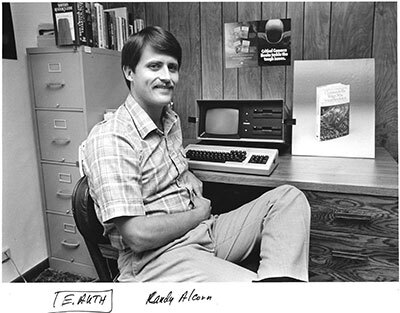Randy Alcorn's Blog, page 32
November 29, 2023
Jesus: Good News of Great Happiness

The angel’s message to the shepherds at Jesus’ birth condenses the gospel to its core. He said, “I bring you good news of great joy that will be for all the people” (Luke 2:10). The gospel isn’t for some; it’s for all. The Greek adjective translated “great” here is megas—this isn’t just news, but good news of “mega-joy.” It’s the best news there has ever been or ever will be.
What characterizes this good news is a deep, everlasting joy for any who will receive it. The Contemporary English Version renders the verse this way: “good news for you, which will make everyone happy.”
Isaiah wrote, “How beautiful upon the mountains are the feet of him who brings good news, who publishes peace, who brings good news of happiness.” And Paul clearly refers to Isaiah 52:7 in Romans 10:15 as he references the gospel, demonstrating that this “good news of happiness” is in fact nothing else but the gospel of salvation in Jesus Christ.
If the gospel we preach isn’t about happiness, then it contradicts God’s words in Isaiah 52:7. The gospel offers an exchange of misery-generating sin for happiness-giving righteousness provided by Jesus Himself. In bowing to Him, the shepherds bowed to joy incarnate, happiness in human flesh.
Joy, exultation, and happiness are proper responses to Jesus.
Each stanza of “O Come All Ye faithful” contains sentiments of true happiness: “joyful and triumphant,” “sing in exultation,” “born this happy morning.”
A gospel not characterized by such overwhelming gladness isn’t the gospel. Think about it—delivery from eternal damnation is delivery from eternal misery.
Those who trust and serve Christ receive this mind-boggling invitation: “Come and share your master’s happiness!” (Matthew 25:21, NIV). Those who trust in riches, in contrast, are told, “Weep and howl for the miseries that are coming upon you” (James 5:1).
Our happiness is certainly not the only thing the gospel is about. However, it’s one of the wonderful things Christ accomplished through His redemptive work.
As a young believer, I often heard testimonies in which people happily recalled the day of their conversion. Years later, it dawned on me that instead of only being happy about what Jesus did in the past (on the cross and at my conversion) and what He’ll one day do (at His return), I should be happy in what He’s doing today. The psalmist was onto something when he said, “This is the day that the Lord has made; let us rejoice and be glad in it” (Psalm 118:24). Yes, he spoke of one particular day, but God has ordained all our days.
I have a friend who genuinely believes that nearly every meal, get-together, retreat, or vacation is the best he has ever experienced. His capacity to enjoy the moment and savor present happiness becomes a treasured memory of past happiness. The present is the only place we live. Circumstances constantly change, and good news comes and goes, but the Good News of happiness has come, it is still here, and it will never go away!
Happiness is our natural response to good news.
The Westminster Shorter Catechism begins with the question, “What is the chief end of man?” and offers the reply, “Man’s chief end is to glorify God and to enjoy Him forever.” For theologians to come up with “glorify God” is no surprise. But to enjoy Him forever?
Why not “obey or fear” Him forever?
The catechism writers understood that the Good News includes more than one dimension. There’s the God who deserves to be glorified, and there are the people He created not only to glorify Him but to enjoy Him and delight in Him unendingly.
When we hear good news, what’s our reaction? Happiness, excitement, wonder, and celebration, right?
The gospel is a concrete, reality-grounded call to happiness. Jesus really did become a man, go to the cross, and rise from the grave. He truly is with us and in us now and will return again one day. These facts are what separate the gospel from wishful thinking.
In Hebrews 3:13, God calls us to happiness this way: “Encourage each other daily, while it is still called today” (HCSB). If God wants us to be happy in Him, today (not tomorrow) is the time to experience Christ-centered happiness.
Choosing to rejoice by rehearsing reasons to be happy and grateful even in the midst of suffering is an affirmation of trust not only in what God has done but also in our belief that He will bring a good end to all that troubles us. The gospel infuses hope and joy into our circumstances because it acknowledges God’s greatness over any crisis we’ll face.
Today’s happiness in Christ is drawn from an infinite deposit of happiness that God has already placed in our account. It isn’t something we have to wait to experience after death, though only then will we experience it completely.
If the gospel doesn’t bring us true happiness, then what we believe is not the gospel. When a pastor or author says, “God never intended for humans to be happy,” it may sound spiritual. But unless being happy is a sin, it’s not true.
Unfortunately, we diminish the Bible’s overflowing happiness when we separate “holy” things that give us joy, such as prayer, Bible reading, and church, from “worldly” things that bring us happiness, such as pets, hobbies, barbecues, vacations, and sports. This turns us into spiritual schizophrenics, creating false divisions between “Jesus time” and “world time,” “God time” and “me time.”
How can we “glorify God in everything” and “pray without ceasing” if we can’t glorify God and pray while working, riding a bike, playing games, or watching a movie?
The truth is, the Good News should leak into every aspect of our lives, even if we’re not consciously talking about God or witnessing to someone. Every time we ponder the gospel, live by it, share it, and anticipate its culmination in a world without sin and death, “good news of happiness” will permeate our lives with . . . well, happiness.
That’s exactly what happened when Paul and Barnabas took the gospel to the Gentiles. Paul said, “We bring you the good news [glad tidings (KJV)]. . . . And when the Gentiles heard this, they began rejoicing [the Gentiles were very happy to hear this (CJB)]. . . . The disciples were filled with joy and with the Holy Spirit [The disciples were overflowing with happiness (CEB)]” (Acts 13:32, 48, 52).
Fred Sanders writes in The Deep Things of God, “A gospel which is only about the moment of conversion but does not extend to every moment of life in Christ is too small. A gospel that gets your sins forgiven but offers no power for transformation is too small.” I would add that a gospel incapable of making you happier than you have ever been is too small.
God timed the incarnation of Jesus—joy personified—perfectly.
“When the set time had fully come, God sent his Son, born of a woman . . .” (Galatians 4:4, NIV). God’s timing in sending Jesus wasn’t just perfect for the world in general; it was ideal for Israel in particular. The hand of Rome was heavy on the Jewish people, and life under an emperor who claimed to be a god was particularly oppressive to those who believed in the one true God.
Though the Jews had long hoped for God’s intervention, the promises of redemption and judgment on their enemies seemed no closer to fulfillment. Discouragement and pessimism were rampant.
When Christianity emerged, the appeal of Jesus’ teachings was widespread. He emphasized truth and virtue, as did Stoicism, and the goodness of pleasures and happiness—including eating and drinking—as did Epicureanism. He also offered a true relationship with God, which the mystery religions fruitlessly sought. Just as He does today, Jesus offered the genuine happiness everyone wanted but had not found.
Wise happiness-seekers accept God’s offer of eternal, unending happiness.
Jesus tells a story about a great party thrown by God: the great banquet (see Luke 14:15-24).
When a good, happy king (who represents God), with vast wealth and unlimited resources threw a party, the people the king invited made all kinds of excuses for not coming. When those who were invited refused, the king sent invitations to anyone his servants could find. So the wedding hall was filled with grateful people.
This parable exemplifies God’s sincere invitation to happiness and our tendency to turn down His invitation to pursue things we believe will make us happier.
Refusing the King’s invitation to endless celebration in His presence is refusing happiness itself.
The moral of the story? When God invites you to a party, say yes. You’ll be happy you did!
Adapted from Randy’s book Happiness .
From Eternal Perspective Ministries: For a short time, you can purchase Randy Alcorn’s The Promise of the New Earth for just $10 (50% off $19.99 retail)! This book makes a wonderful gift this Christmas season. Plus get free media mail shipping on orders over $30 with code 23THANKS.
"This isn’t pie-in-the-sky, wishful thinking about the New Heaven and New Earth. Randy Alcorn reminds his readers that we get genuine glimpses through promises God has made in His Word and through the life of Jesus." – Reader Review
Sale ends Thursday, November 30 at noon PT. Free shipping offer ends Friday, December 8. Available for U.S. continental orders only.
Photo: Unsplash
November 27, 2023
Giving, the Gift of Happiness

Sociologist Christian Smith’s study on generosity yielded this observation: “People rightly say that money cannot buy happiness. But money and happiness are still related in a curious way. Happiness can be the result, not of spending more money on oneself, but rather of giving money away to others. . . . The data examined here show this to be not simply a nice idea, but a social-scientific fact.”
Sure, receiving a gift is great, and our hearts should be full of praise to God for what He has given us—first and foremost His Son, but also thousands of other smaller gifts we seldom think about. We should be profoundly grateful for what others have given us too. But have you ever worked hard to find the perfect gift for someone you love? Or thrown a surprise party for someone or given them tickets to a concert or game? Or given a bag of groceries to a person in need? Don’t you get great happiness in the planning and giving of that gift? And isn’t your joy multiplied by the receiver’s joy?
No Greater Privilege
The thought that giving makes us happier than receiving seems counterintuitive. What could be better than receiving a gift? Don’t we love Christmas and our own birthdays? Isn’t it fun to get a package in the mail?
 Once, I received a totally unexpected gift of a framed black-and-white photograph of me sitting at a desk in 1985, in front of my first book and my first computer (a Kaypro, for those over fifty who remember or care). My friend tracked down and bought the photo, taken by a photographer from the local paper more than thirty years ago.
Once, I received a totally unexpected gift of a framed black-and-white photograph of me sitting at a desk in 1985, in front of my first book and my first computer (a Kaypro, for those over fifty who remember or care). My friend tracked down and bought the photo, taken by a photographer from the local paper more than thirty years ago.
Looking at the photo was like time traveling, and it brought back a flood of memories. Did my joy in receiving negate what Jesus said? No, because when I contacted the woman who had given it to me, she told of her utter delight in finding, framing, and sending it to me. As much as I enjoyed receiving it, she seemed to enjoy giving it even more. And though I’ve received a lot of great gifts over the years, many of those that make me smile the most are those I’ve given to my wife, daughters, friends, people I met in a store or on a plane, and even people I haven’t met who have received food, clothes, clean water, and the gospel through organizations my family and I have supported.
If we understand what Scripture says about how giving touches lives for eternity, stores treasures for us in Heaven, and brings us great happiness here and now, we’ll realize there’s no greater privilege than to live lives of overflowing love and joyful generosity. It’s a no-brainer.
The Payoff of Loving Jesus and Others
On a trip to Ukraine, my pastor friend and I spent the evening with a large family, feasting and singing hymns and laughing and exalting Jesus together. We felt bad when we learned our hosts had served an entire month’s ration of butter at the meal, but we were assured there was nothing they would rather have done than open their hearts and home to brothers in Christ. It was humbling to be served when we had envisioned ourselves going to serve them. Giving is a great equalizer among God’s people.
To the selfish person, the giver’s behavior appears foolish and against his best interests. (Why part with a month’s ration of butter to serve rich visitors who have unlimited amounts of butter at home?) Scripture says the opposite: “One person gives freely, yet gains even more; another withholds unduly, but comes to poverty” (Proverbs 11:24, NIV). The Message puts it this way: “The world of the generous gets larger and larger; the world of the stingy gets smaller and smaller.”
I’ve certainly known generous people who were facing serious problems, but I’ve never known a generous soul—of any income level—who was chronically unhappy. Sure, we all struggle with life’s tough circumstances. But I’ve found in life what studies confirm: even in hard times, loving, generous people always default not only toward gratitude but happiness. That wonderful Ukrainian family might have missed their butter, but the payoff of loving Jesus and us by showing hospitality was, to them, a far greater treasure.
See more resources on money and giving, as well as Randy's related books, including Managing God's Money and Giving Is the Good Life .
Photo: Pexels
November 24, 2023
Sixty Years Later, C. S. Lewis’s Voice Still Speaks

I shared these reflections on my Facebook page last Wednesday, but I wanted to also share them on my blog and add some other important things about C.S. Lewis.
Wednesday, November 22, flooded me with memories of exactly 60 years ago, as a nine-year-old third grader at Orient Elementary School. I remember the exact place I was standing on the stairs, walking from one room to another about 10:40 AM when a teacher, also on the stairway, said, “President Kennedy has been shot.” Within the hour we got the news that he was dead. It affected all the teachers and students dramatically.
When I got home from school that day, my mother was in front of our black and white TV weeping. JFK was young and strong and athletic, very popular among children. We talked about him in class all the time; it was very different from today’s world. All of our lives changed that day, as it all seemed so unthinkable. That Thanksgiving and Christmas our country was under a shadow. The president was a superhero to us (not so much to many church families, but I didn’t grow up in a church family).
Years later, after I had come to Christ and was by then reading every book by C. S. Lewis I could find, I discovered that Lewis had died the same day as Kennedy. Still later I learned it was just one hour earlier. Two immensely powerful figures in my life, one who would eventually exert far more and lasting influence than the president.
Samuel James writes, “It is a remarkable providence that John F. Kennedy and C.S. Lewis died on the same day. It is likewise remarkable that while Kennedy obtained the most powerful office in the world, it is the professor, the letter writer, and the storyteller Lewis whose prophetic voice rings out most audibly and most wisely from the grave.”
(See his article A prophetic voice rings out.)
Finally, this article from Trevin Wax on Lewis’s last days is touching. Trevin writes,
Lewis said goodbye to his closest friends, perhaps like Reepicheep as he headed over the wave in his coracle in The Voyage of the Dawn Treader—“trying to be sad for their sakes” while “quivering with happiness.” The joy—the stab of inconsolable longing—that animated his poetry and prose was on display in how he died, in those weeks of quiet rest, as he endured his physical maladies with patience and good humor, in full faith that this earthly realm is just a prelude to the next chapter of a greater story, a new and wondrous reality suffused with the deep magic of divine love.
See Randy’s blog about C. S. Lewis’s influence on his life and writing, as well as his conference message about C.S. Lewis on Heaven and the New Earth.
JFK photo: Wikimedia Commons
November 22, 2023
May Christ’s Promise of Eternity with Him Cause You to Rejoice This Thanksgiving

Tomorrow will be our family’s second Thanksgiving with Nanci in Heaven. I am so deeply grateful for the life God gave us together, and it is impossible to be this grateful without also being happy. This is 2 Corinthians 6:10, “sorrowful yet always rejoicing.” And it is not just words or pretense; it’s an absolute blood-bought reality, a certainty that I feel deep in my heart and bones. I sense continuously His presence. “I lift up my eyes to the mountains—where does my help come from? My help comes from Yahweh, the Maker of heaven and earth” (Psalm 121:1-2).
Of all people, God’s people have the best reasons to rejoice at Thanksgiving. After all, our names are written in Heaven not because we were smart and strong and moral. Rather, “because of him you are in Christ Jesus, who became to us wisdom from God, righteousness and sanctification and redemption” (1 Corinthians 1:30). In other words, Jesus became for us, and remains for us, what we could never be for ourselves. And that should overwhelm us with unending gratitude.
Author Nancy Guthrie writes, “God is calling us to receive with thankful joy our Savior. He is calling us to join in the heavenly celebration, that we might be happy as He is glorified. God has come to us in Christ to bring glory to Himself in the highest as He grants us peace here in our lives. What can we do but rejoice?”
I am continuously grateful to Jesus, the Creator and Master Builder, who has paid the price of redemption and will one day completely fix all that’s broken and bring into full flower the New Heavens and New Earth, the home of relentless and unending happiness.
Helen Keller blind and deaf since a toddler, wrote, “For three things I thank God every day of my life: thanks that he has vouchsafed me knowledge of His works; deep thanks that He has set in my darkness the lamp of faith; deep, deepest thanks that I have another life to look forward to—a life joyous with light and flowers and heavenly song.”
One day, Nanci and I—and all of God’s risen people—will behold “the river of the water of life, as clear as crystal, flowing from the throne of God and of the Lamb down the middle of the great street of the city. …No longer will there be any curse. The throne of God and of the Lamb will be in the city, and his servants will serve him. They will see his face…” (Revelation 22:1-4).
I am also so grateful for your support of EPM’s ministry, whether that’s through prayer, giving, or reading and sharing our resources. Whatever challenges and joys you might be facing this Thanksgiving season, I trust you will experience the presence and love of King Jesus. May we all anticipate the glorious fulfillment of God’s great promise that in the coming ages He will continuously reveal to us the incomparable riches of His grace, expressed in His kindness to us in Christ Jesus. And until then, even today, may He give us glimpses of that grace and kindness for which we owe Him all gratitude and praise.
Photo: Unsplash
November 20, 2023
Controlling the Chaos of the Holiday Season

Stress studies show that a sense of control is essential to mental health. Those who survive captivity with the fewest mental scars are those who maintain as much control as possible even when so much is out of their control. They may treat their cell as a home, rearrange the “furniture,” save food and share it with others, write notes to themselves, make plans for their days, order their lives in simple ways. Prisoners who lose their sense of control lose their purpose, their self-respect, and eventually their minds.
Most of us are not prisoners, but all of us, for better or for worse, face the holidays year after year. From mid-November to early January, our lives change, bringing many things that are delightful, but which increase our pressure and fatigue. For many, the holidays seem out of control, the chaos inevitable.
Plan Now, Play Later
Much of both the financial stress and the time crunch can be avoided with planning. Buy Christmas presents in advance (when they’re on sale); plan the dinner now, watch for food sales and buy, prep and freeze it early; say “no” to extra engagements around Christmas; buy next year’s cards the day after Christmas (best sale day of the year) and begin writing them in October (do wait until December to mail them). Nanci and I don’t send Christmas cards, we send Thanksgiving cards. It’s more special then, and we don’t have to add it to December’s responsibilities.
To avoid the Christmas chaos of children opening ten presents in one night, spread out the presents the week before Christmas, letting them open one a day. Or, better yet, simplify by making useful gifts for each other and encouraging grandparents and friends to limit presents to one per person. Gifting to the needy something related to and in honor of your family members’ interests through Samaritan’s Purse, Africa New Life or similar ministries adds an eternal benefit along with the benefits of ease (no wrapping, broken and missing parts or storage issues).
Set aside time to read the Christmas story unrushed.
This is just a beginning. You can make dozens of changes. You cannot eliminate all holiday stress of course, but you can certainly minimize it. And if you don’t, remember, it’s not because you couldn’t but because you didn’t. It’s your choice.
For years I lived under the tyranny of the telephone. I treated the ringing of the phone as a divine mandate, and I missed too many dinners and bedtime prayers with my daughters because of that phone—no, actually because of my choice to answer the phone.
Finally I discovered something that changed my life: phone calls are seldom from Mt. Sinai. There are few true emergencies and it won’t hurt people to wait an hour or a day for me to call. When my daughters were growing up there weren’t cell phones, and one of the best things about going out for the evening as a family was that nobody could reach us! We can do the same thing now—but it requires silencing the phone. You don’t have to see who’s calling, texting, tweeting, Facebooking, or…fill in the blank. In fact, if you do, you’re saying they are more important than the people you are with. As Jim Elliot once said, “Wherever you are, be all there.”
The phone is our servant, not our master. I still get notifications on my phone at all hours. I just don’t necessarily answer them right away! And I live guilt-free, because I know it’s what God wants. Looking back, I’m amazed and embarrassed that until I was thirty I let that piece of technology disrupt me and my family. All because I didn’t take control. Thank you, Lord, for waking me up when you did!
Dealing With Your Own Stressors
Whether Christmas or the telephone are a problem for you, or you worry about losing your job or you’re concerned about a friend who is facing a divorce, list circumstances or situations in your life that trigger a stress response. Put them in one of the following categories: uncontrollable, controllable, and partly controllable.
After you identify the sources of stress and determine which ones you can control—even partially—jot down specifically what you can do about them. Make your plan, schedule the time to do it, then follow through and implement the necessary changes.
While there is much we can’t control, we can always follow God’s formula for dealing with stress by praying. “Do not be anxious about anything, but in everything by prayer and supplication with thanksgiving let your requests be made known to God” (Philippians 4:6, ESV). Sometimes we desperately want to take control when we cannot. But we know and trust the One who is in control and that’s where we rest.
Can You Take Control and Still Trust God?
How do self-control and spirit-control relate to each other? How can we reconcile those passages of Scripture that emphasize waiting on a sovereign God with those that emphasize our responsibility to take action? This is a tension that Paul felt, but clearly he saw God at work through his own efforts: “To this end I labor, struggling with all his energy, which he so powerfully works in me” (Colossians 1:29).
There is a time to work for change, a time to leave change to God, and a time to accept the fact that change will probably not happen. My own rule of thumb is “Don’t play dead, but don’t play God.”
One of the most significant findings in psychology in the past twenty years is that individuals can choose the way they think. This corresponds with Scripture, which tells us we are to “be transformed by the renewing of [our] minds” (Romans 12:2, ceb), and that we should think about things that are good and praiseworthy (see Philippians 4:8).
The Christian life is supernatural but not enchanted. God doesn’t magically make us happy despite the fact that we make work, sports, leisure, or sex into our idols. If we choose to seek happiness elsewhere, God won’t force himself on us. And He certainly won’t give us happiness in what distances us from Him.
Happiness comes naturally in the same sense that fruit comes naturally from a tree. If the tree gets sufficient sunshine and water, if the ground is rich in nutrients, if the tree doesn’t contract diseases, then yes, it “naturally” produces fruit. We must plant ourselves in the rich soil of God’s Word, soak in the living water of God and His people, and bask in the radiant sunlight of His grace. We must take the steps to help and serve others, loving not only God but also our neighbors. Only then, as we change our minds and actions, will newfound happiness come “naturally.”
So, adapt to what you cannot control, control and influence what you can, and leave the rest to Him. And remember—when you do, it will be in infinitely bigger, better, stronger hands than yours.
For more, see Randy's book Help for Women Under Stress.
Photo: Unsplash
November 17, 2023
How Anticipation for Heaven Changes Our Lives Now

In this video from my class Eternity 101, I talk about how anticipating Heaven motivates us to live life differently now:
Below is an expanded transcript of what I share in the video:
Charles Spurgeon wrote in his classic devotional Morning and Evening, “Christian, meditate much on Heaven, it will help thee to press on, and to forget the toil of the way. This vale of tears is but the pathway to the better country: this world of woe is but the steppingstone to a world of bliss. And, after death, what cometh? What wonder-world will open upon our astonished sight?”
This is what we need to do. In the spirit of C. S. Lewis and Charles Spurgeon, we should anticipate the world to come. And if we are delighted by that anticipation—because we know the God who lives there; we know the Carpenter from Nazareth, who’s gone to prepare a place for us—it will radically change us and get hold of us. We will not view death the same. Not our death, or the death of a loved one.
It doesn’t mean we’ll look forward to death because death involves some level of suffering. And it doesn’t mean we’ll be glad that our loved one is gone, of course. But it does fundamentally change the game…big time!
In this excerpt from my novel Deception, Detective Ollie Chandler looks to his friends, Jake Woods and Clarence Abernathy, for a reason to anticipate Heaven:
“Why would anyone want to go to heaven? When my grandmother spoke about heaven, it was the last place I wanted to go. Who wants to be a ghost anyway? My idea of utopia was a place like earth, where you could have fun and ride bikes and play baseball and go deep into the forest and dive into lakes and eat good food.”
“Sounds to me like the New Earth,” Clarence chimed in from the backseat.
“Exactly,” Jake said. “The Bible says the heaven we’ll live in forever will be a New Earth, this same earth made new, without the bad stuff. God doesn’t give up on His original creation. He redeems it. And we’ll have these same bodies made better. The Bible teaches the exact opposite of what you’re saying—we won’t be ghosts. We’ll eat and drink and be active on a redeemed earth.”
“So you’ll still be Jake Woods?” I asked.
“Yeah—without the bad parts. We’ll be able to enjoy creation’s beauty and rule the world the way God intended us to. Baseball and riding bikes? Why not?”
“Wish I could believe that.”
“What’s stopping you?” Jake asked.
God evicted the devil from Heaven; now our enemy wants Heaven to sound boring to us, because that implies God is boring. He doesn't want us to be so excited about Heaven and the New Earth that we would want to share the Gospel with people so they too would anticipate living forever with God and His people.
And I also think our anticipation calls us to live at a greater level of purity, a greater level of service in this world. In 2 Peter 3, we’re told about the new heavens and the New Earth, in which righteousness dwells. Then Peter wrote, “So then, dear friends, since you are looking forward to this, make every effort to be found spotless, blameless and at peace with Him.” He proceeded all that with verse 11, “Since everything will be destroyed in this way, what kind of people ought you to be? You ought to live holy and godly lives as you look forward to the new heavens and the New Earth.”
Peter links the promise of life together in the new universe with the call to be holy and pure and to live for Christ. God wants us to use this time He’s given us to serve Him with all our hearts. I pray that’s what God’s people would do.
From Eternal Perspective Ministries: Right now you can purchase Randy Alcorn’s Heaven for Kids on sale from our ministry for $7 (50% off $13.99 retail)! Plus get free media mail shipping on orders over $30 with code 23THANKS.
"I and a fellow teacher have found Heaven for Kids uses a question and answer format that is not just for kids. I and several adult friends of mine have read this book and find it very enlightening and informative. It truly makesyou look forward to the better place God has prepared for His believers—especially in light of all the turmoil and disturbing issues of the world today." —Reader Review
Sale ends Monday, November 20 at noon PT. Free shipping offer ends Friday, December 8. Available for U.S. continental orders only.
Photo: Pexels
November 15, 2023
Two Wonderful Opportunities to Give to the Needy in the Philippines This Christmas

My friend Doug Nichols is the founder of Action International Ministries, a wonderful missions organization, and he now travels and serves as a global missions advocate, serving internationally with Commission To Every Nation (CTEN).
Doug shared with me about two Christmas missions projects, and though I rarely highlight specific giving opportunities on our website, I’m making an exception for these. I am struck at how inexpensively many people can be helped:
1. Christmas Ministry to Needy Children in the Philippines.
There are up to two million street children in the Philippines, with 200,000 in Metro Manila alone. Many more extremely poor children are in unreached depressed villages and areas throughout the country.
Our Lord said, “Allow the children to come to Me, and do not hinder them…” (Matt. 19:14).
During the November/December Christmas season in the Philippines, small churches and ministries in poor areas seek to have some type of Christmas Gospel outreach to these neglected and needy children.
Street and poor children see other children attending parties, eating, and receiving gifts, yet they have nothing.
Several of our ministry partners and churches are planning “Children’s Christmas Outreaches” for these most needy children with games, a large meal, and especially the gospel; however, they have little or no funds to do so especially as they have little or no funds for their own families.
We can help our ministry friends with the small expense with a budget of only $4 per child. This small amount will provide a special Christmas event for these children with a large healthy meal, the gospel and perhaps a small gift!
This year, with so many hungry and needy in the Philippines amongst the poor, we have a burden to help these Christmas Outreaches to reach up to 3,000 needy children!
This is a huge undertaking, and we ask for your prayer and participation!
For example, the budget to serve 50 needy children at a special Children’s Christmas Outreach with a meal and the gospel would be $200, which is only $4 per child.
Perhaps you, your family, or your church would consider sponsoring one of these Christmas Gospel outreaches for 50 children with $200, or 500 children with $2,000.
2. Pastors’ Timothy Study Commentary Seminars ($10 per pastor).
By God’s grace, we have received 1,000 free copies for pastors in the Philippines of the excellent $24 “Study Commentary of 1 & 2 Timothy” by Dr. William Barcley, Senior Pastor at Sovereign Grace Presbyterian Church, Charlotte, and Adjunct Professor at Reformed Theological Seminary.
Our 12 main ministry partners will conduct “Timothy Book” Seminars for 1,000 pastors throughout the country.
For example, in a seminar for 20 pastors, they will spend a day with a pastoral leader going through this practical commentary to help them with their shepherding and especially in preaching and teaching of the Word.
The seminar will begin with an early breakfast, then several lecture/study sessions in the Timothy commentary, a full healthy meal at noon, then more study time and closing with a light snack.
There is no charge for the seminar and book (valued at $24) for these pastors, most of whom are very poor and have no training. Just the expense of travel to the seminar will be a great financial burden for them.
Our cost is $10 per pastor which covers all expenses. The total seminar expense for 20 pastors is $200, 30 pastors is $300, for 1,000 pastors our total need is $10,000.
Also: Shipping of Timothy Study Commentaries ($54 ships a 100 lb. box of 96 Commentaries).
Our ministry team in Seattle is packing these donated copies of the “Study Commentary of 1 & 2 Timothy” to ship to the Philippines.
As 96 copies of the commentary are packed in each large 100-lb. box, we will be shipping 12 boxes at $54 each box, for a total need of $648.
I’d love to suggest that you consider giving an extra $200 this Christmas to go to one of these causes, or $400 to go to both. That is a very small amount of money, considering how much many of us tend to spend on gifts and activities this time of year. Imagine—just $4 to share the gospel and God’s love with a child! And only $10 to serve a pastor in need of support and training. One ministry partner wrote Doug about the 2022 outreach to needy children: “[At] last year’s event, in two places alone, more than two hundred children accepted Christ and many of them continue in the Lord.”
Giving to help children (and our brothers and sisters in Christ) recognizes their value to Jesus and their special need for care and protection. He says, “Whatever you did for one of the least of these brothers and sisters of mine, you did for me” (Matthew 25:40). Consider sharing this with friends or your small group and encourage them to get in on this opportunity. Let’s invest this Christmas in the lives of the needy, knowing there is no better way than giving to honor Jesus, the one who gave Himself for us: “Though he was rich, for your sake he became poor, so that by his poverty you might become rich” (2 Corinthians 8:9).
For ease of giving, through the end of November, you can donate to these outreach projects by giving directly through EPM, and 100% of all donations will be passed on and split between these two worthy causes. Select “Missions Fund” on our donation page. If you’d prefer to send a check, you can make it payable to Eternal Perspective Ministries and send to: 39065 Pioneer Blvd, Suite 100, Sandy, OR 97055. Be sure to write “Philippines” in the notation area.
November 13, 2023
The Divine Paradox of God’s Sovereignty and Meaningful Human Choice

I once spoke to eighty college students about a sensitive theological question: “Can true Christians lose their salvation?” First, I asked them to commit themselves to a yes or no answer. I separated them, according to their answers, on opposite sides of the room, breaking them up into small groups.
Next I gave everyone a handout featuring twenty passages of Scripture. After reading these aloud, the students were to discuss in their groups and decide: “If these were the only Scripture passages I had, would I answer the question yes or no?”
Tensions rose. On both sides of the room, students looked confused, and some were angry.
Only afterward did I explain that I’d given each group different handouts consisting of entirely different passages. The Scriptures each group was given appeared to teach an answer exactly opposite to the position they’d said they believed.
My main take-away was that we need to establish our positions in light of all Scripture, not just our preferred passages that support what we wish to believe.
The issue of whether Christians can lose their salvation is one that involves matters of God’s sovereignty and human choice. The question typically gets one answer from those called Arminians (“yes”) and the opposite answer from those called Calvinists (“no”). John Wesley is seen as the classic Arminian, while John Calvin (surprise!) is the classic Calvinist; but, trust me, neither Calvin nor Wesley were idiots (which I wanted to help those eighty college students understand).
These jokes are light-hearted illustrations of the two views:
How many Calvinists does it take to change a light bulb?
None. Only God can change a light bulb. Since He has ordained the darkness and predestined when the lights will come on, stay seated and trust Him.
How many Arminians does it take to change a light bulb?
Only one. But first the bulb must want to be changed.
How do you confuse a Calvinist?
Take him to a buffet and tell him he can choose whatever he wants.
Calvinists have their TULIP; what flower do Arminians prefer?
The daisy. Why? “He loves me, He loves me not. He loves me, He loves me not…”
(TULIP is an acronym representing Total depravity, Unconditional election, Limited atonement, Irresistible grace, and Perseverance of the saints. These “five points of Calvinism” were stated at the Synod of Dort in the early 1600s in response to five assertions of the Arminian “Remonstrants.”)
In terms of belief in the Bible and love for Christ, Calvinists and Arminians have a lot in common. Most Calvinists live daily as Arminians do—freely making choices for which they take personal responsibility. Most Arminians pray like Calvinists—believing a sovereign God can and does change people’s hearts, swaying their wills.
Better questions than “Are you a Calvinist or an Arminian?” are “What does the Bible actually teach?” And “Do you believe it?” Let’s trust all of God’s words, not just the ones that fit neatly into a preferred theological system or church tradition.
We can agree that God is sovereign and all-powerful without agreeing about how He chooses to exercise His power.
God is “the Lord, strong and mighty, the Lord, mighty in battle!” (Psalm 24:8, ESV). The rhetorical question “Is anything too hard for the Lord?” implies the answer no (Genesis 18:14; compare Jeremiah 32:27). Gabriel said to Mary, “Nothing is impossible with God” (Luke 1:37). Jesus said, “With God all things are possible” (Matthew 19:26).
God is the “Almighty” (2 Corinthians 6:18; Revelation 1:8). He is “able to do far more abundantly than all that we ask or think” (Ephesians 3:20, ESV). John the Baptist said, “God is able from these stones to raise up children for Abraham” (Matthew 3:9, ESV).
God’s sovereignty is real, but not every statement people make about it is true. Scripture emphasizes God’s sovereignty, yet it fully recognizes the role of evil people as well as Satan and demons.
Scripture makes clear that Satan and demons in fact have a powerful influence on the course of events in this world (see 2 Thessalonians 2:9; 1 Timothy 4:1; 1 John 5:19; Revelation 12:9). An emphasis on God’s sovereignty should not undermine or negate horrible evils.
In a sovereignty-only perspective, human choice can become buried so deep that it’s nominal, essentially an illusion. “Since God is sovereign, it really doesn’t matter how we live. Even if I choose sin, it will be according to God’s plan. Why should I work hard at my job, my marriage, or my parenting when my effort doesn’t matter and it’s all in God’s hands?” Yet Scripture is full of verses that contradict such a conclusion. When Moses said in Deuteronomy 30:19, “Choose life in order that you may live” (NASB), surely he wasn’t saying, “God has predetermined all your choices, so although you imagine you’re choosing, it’s really God making you choose rightly or wrongly.”
When Joshua said, “Choose this day whom you will serve” (Joshua 24:15, ESV), didn’t he mean they really could choose, and that whether they chose either idols or God, it was genuinely their choice? We should of course call upon God to empower us to make right choices. But that’s not the same as calling on God to make our decisions for us.
What about the many passages of Scripture that show the tragic results of sin? When Achan’s sin resulted in the death of his family (see Joshua 7:10–26) and when Herod killed children in an attempt to murder Christ (see Matthew 2:16–18)—were these not real choices which God permitted and used, but which He did not determine in the sense of causing anyone to sin?
No Calvinist pastor says to his congregation, “Your choices don’t matter, since God has sovereignly predetermined everything, including your sins and your Arminian theology!”
No, he admonishes his people to repent and avoid sin, and to change their theology by choosing to believe something different. Doesn’t every sermon call on people to make good choices? And aren’t most of those choices ones that can actually be made?
“His divine power has given us everything we need for life and godliness through our knowledge of him who called us by his own glory and goodness” (2 Peter 1:3). God has given all of us the capacity to make right choices; doesn’t the fact that we often make wrong ones suggest that we, as well as God, are involved in determining our life direction?
Biblically, God’s sovereignty is affirmed emphatically, yet it doesn’t swallow up our ability to choose or our responsibility for the choices we make.
God’s sovereignty and our meaningful choices are the parallel tracks that allow the train of our faith to move smoothly in the right direction.
Excerpted from Randy's book hand in Hand: The Beauty of God’s Sovereignty and Meaningful Human Choice .
Photo: Unsplash
November 10, 2023
9 Lessons God Teaches Us Through Sickness

During her four-year battle with cancer, my precious wife and soulmate, Nanci, immersed herself daily in God’s Word, read great books about His attributes, and wrote to Him in her journal. Together we turned to Jesus in prayer and worship as we drew close to God and each other and faced her death side by side. Nanci’s physical decline was heartbreaking, but her spiritual growth was stunning and profound.
Recently I read “9 Lessons from God Concerning Sickness” from J. C. Ryle, an Anglican bishop (1816–1900). Every lesson he shares applies to how Nanci lived out her last years before relocating to Heaven. In fact, I was surprised I’d never read this before. Nanci would’ve loved it, and she probably loves it now more than ever. Praise God for J. C. Ryle!
He wrote:
Affliction is a friendly letter from Heaven. It is a knock at the door of conscience. It is the voice of the Savior knocking at the heart’s door. Happy is he who opens the letter and reads it, who hears the knock and opens the door, who welcomes Christ to the sick room. Come now, and let me show you a few of the lessons which He by sickness would teach us.
1. To make us think, to remind us that we have a soul as well as a body—an immortal soul, a soul that will live forever in happiness or in misery—and that if this soul is not saved we had better never have been born.
2. To teach us that there is a world beyond the grave, and that the world we now live in is only a training place for another dwelling, where there will be no decay, no sorrow, no tears, no misery, and no sin.
3. To make us look at our past lives honestly, fairly, and conscientiously. Am I ready for my great change if I should not get better? Do I repent truly of my sins? Are my sins forgiven and washed away in Christ’s blood? Am I prepared to meet God?
4. To make us see the emptiness of the world and its utter inability to satisfy the highest and deepest needs of the soul.
5. To send us to our Bibles. That blessed Book, in the days of health, is too often left on the shelf, becomes the safest place in which to put a bank-note, and is never opened from January to December. But sickness often brings it down from the shelf and throws new light on its pages.
6. To make us pray. Too many, I fear, never pray at all, or they only rattle over a few hurried words morning and evening without thinking what they do. But prayer often becomes a reality when the valley of the shadow of death is in sight.
7. To make us repent and break off our sins. If we will not hear the voice of mercies, God sometimes makes us “hear the rod.”
8. To draw us to Christ. Naturally we do not see the full value of that blessed Savior. We secretly imagine that our prayers, good deeds, and sacrament-receiving will save our souls. But when flesh begins to fail, the absolute necessity of a Redeemer, a Mediator, and an Advocate with the Father, stands out before men’s eyes like fire, and makes them understand those words, “Simply to Your cross I cling,” as they never did before. Sickness has done this for many—they have found Christ in the sick room.
9. To make us feeling and sympathizing towards others. By nature we are all far below our blessed Master’s example, who had not only a hand to help all, but a heart to feel for all. None, I suspect, are so unable to sympathize as those who have never had trouble themselves—and none are so able to feel as those who have drunk most deeply the cup of pain and sorrow.
Summary: Beware of fretting, murmuring, complaining, and giving way to an impatient spirit. Regard your sickness as a blessing in disguise—a good and not an evil—a friend and not an enemy. No doubt we should all prefer to learn spiritual lessons in the school of ease and not under the rod. But rest assured that God knows better than we do how to teach us. The light of the last day will show you that there was a meaning and a “need be” in all your bodily ailments. The lessons that we learn on a sick-bed, when we are shut out from the world, are often lessons which we should never learn elsewhere.
Source: The J.C. Ryle Archive
I saw each of these points play out in Nanci’s life. She had always been a godly woman who loved Jesus, and no one knew that better than I did. But God’s supernatural work in her life as she faced death was breathtaking. Her relationship with Jesus reached new depths, and I had the privilege of witnessing and benefiting from her eternal perspective, a perspective we had each sought to cultivate and live by.
Yes, sometimes Nanci felt anxious, but she instructed herself by God’s Words, and the anxiety was replaced by peace and hope and rest in the great God she knew to be her Father, and the Jesus she knew not only as Savior and Lord, but friend. After reflecting on Psalm 119, which says in verse 93, “all things are your servants,” she wrote:
My cancer is God’s servant in my life. He is using it in ways He has revealed to me in these verses and in many more I have yet to understand. I can rest knowing that my cancer is under the control of a sovereign God who IS good and DOES good.
I never saw a hint of resentment in Nanci. The question was never Why Me, Lord? She had no sense of entitlement. God was God. Her job wasn’t to question Him, but to honor Him and embrace His plans and purposes. She was determined not to waste her life, including her cancer.
And because of that, Nanci finished well. She flourished in her time of sickness, and she leaned into the finish line. May we follow her example in our own times of suffering.
(See “My Cancer Is God’s Servant”: Reflections by Nanci Alcorn, Why the Year After Her Cancer Diagnosis Was the Best Year of Nanci’s Life, and Can Cancer Be God’s Servant? What I Saw in My Wife’s Last Four Years.)
Photo: Unsplash
November 8, 2023
What Is God’s Common Grace?

Common grace is one of my very favorite doctrines. I so love it and wish it were better understood and more often celebrated.
“Common grace” points out that God loves the whole world, and exercises patience and kindness even to those who ultimately reject Him. In his excellent book Bible Doctrine, Wayne Grudem says, “Common grace is the grace of God by which he gives people innumerable blessings that are not part of salvation. The word common here means something that is common to all people and is not restricted to believers or to the elect only.”
This magnificent and beautiful doctrine flows right off the pages of Scripture and is repeatedly confirmed by daily observation. It is demonstrated in Christ’s words, “Love your enemies and pray for those who persecute you, so that you may be sons of your Father who is in heaven; for he makes his sun rise on the evil and on the good, and sends rain on the just and on the unjust” (Matthew 5:44-45).
We Ask the Wrong Question
Common grace emphasizes the goodness of God. It exactly reverses the standard logic most people use. For example, Rabbi Kushner asked, “Why Do Bad Things Happen to Good People?” and concluded in his bestselling book that God is either not all-good or not all-powerful. He bailed God out (so he thought), rescuing Him from not being good by concluding God is not all-powerful.
Understanding neither God’s holiness nor the reality and extent of our sin, we fail to realize that the question of why bad things happen to good people is exactly backwards. It’s the wrong question. The real question (which angels likely ask, having seen their angelic brethren permanently evicted from Heaven for their rebellion) is “Why Do Good Things Happen to Bad People?” If we understood who God is and how we are, that is exactly the question we would ask.
This is the wonder and awesomeness of the doctrine of common grace. God graciously and kindly brings good to people who deserve the fires of Hell not simply eventually, but right now. It is characteristic of bad people to not think of themselves as being bad. We imagine we are good (not perfect, but good enough), so we fail to marvel at God’s common grace. When a tsunami happens, we ask, “Where is a good God?” But when a tsunami doesn’t happen, we usually fail to thank Him for restraining from us the devastations of a world in rebellion against God. And certainly we never say, “Where is a just God? Why hasn’t He struck me down for my sin today?” Instead, we moan that we can’t find a close parking space on a rainy day.
Jesus appeals to God’s common grace as a basis for our extending grace to others, even those who hate us (Luke 6:35-36). If not for God’s common grace—if God brought immediate terrible judgment on unbelievers—the world as we know it wouldn’t exist. Among other things, no one would have an opportunity to come to Christ, since we would be immediately cast into Hell.
He Is Good to All
Paul said to unbelievers, “In past generations he allowed all the nations to walk in their own ways; yet he did not leave himself without witness, for he did good and gave you from heaven rains and fruitful seasons, satisfying your hearts with food and gladness” (Acts 14:16-17). I find this a very touching statement of God’s grace toward all, and an appeal for all people to realize His love, even in a world under the curse. Satan is taking his toll on this world in bondage to sin, but even though none of us deserve His grace, God extends it to us. This world gives foretastes of both Heaven and Hell. Tragically, it is the closest to Heaven the unbeliever will ever know, and wonderfully, it is the closest to Hell the child of God will ever know.
David says, “The LORD is good to all, and his compassion is over all that he has made. . . . The eyes of all look to you, and you give them their food in due season. You open your hand, you satisfy the desire of every living thing” (Psalm 145:9, 15-16). God cares for His creation and extends His grace to all—not only people but animals, though they suffer under the Curse and will until Christ’s return.
Another thing I appreciate about common grace is its irony. God gives atheists not only food to eat and air to breathe, but also the very minds and wills and logic that they use to argue against Him. The man who says God cannot be good since He allows suffering doesn’t grasp that God is withholding from him the full extent of suffering he deserves for his evil, and that is the very thing that gives the man the luxury of formulating and leveling his accusations against God.
Let’s Praise God for the Breadth of His Grace
Common grace, along with the fact that we are created in God’s image, also explains how sinners can still do good. Jesus says, “If you do good to those who do good to you, what credit is that to you? For even sinners do the same” (Luke 6:33). This means human culture has developed much that is good alongside the evil.
I love John 1:9, which says that Jesus came as the light that “enlightens every man.” I think this reflects that fact that all people in history have benefited from the coming of Christ, even those who reject Him. The model of Christ, His grace and truth, His elevation of women and conciliatory words, created a reference point for bringing freedom and civil rights to many societies. As far as we still have to go, the progress in affirming the rights of women and racial minorities in our own culture is due not to the current beliefs of moral relativism, but to the teaching and model of Christ which sowed the seeds for later reversal of the injustice (including slavery, women unable to vote, etc.) that still hung over this country when it was founded.
To me common grace is a wonderful doctrine, true to Scripture and true to the world we see around us. If someone prefers to call it something different, that’s fine (though I like the term), but whatever we call it, it’s biblical and significant, and it causes me to praise God for the breadth of His grace.
Photo: Unsplash



